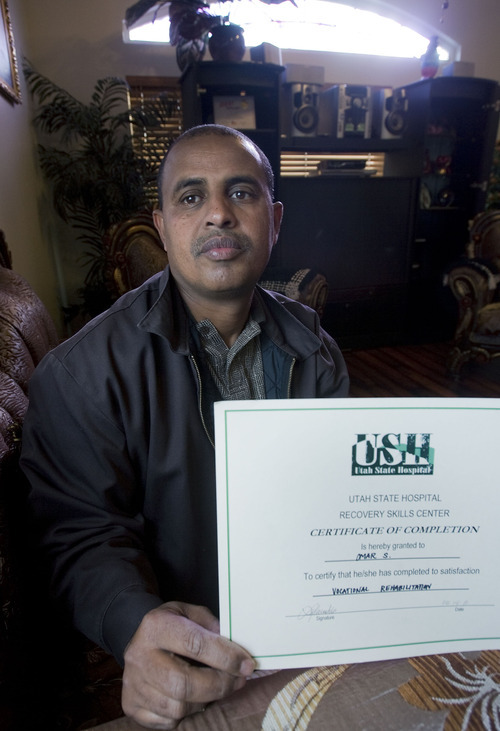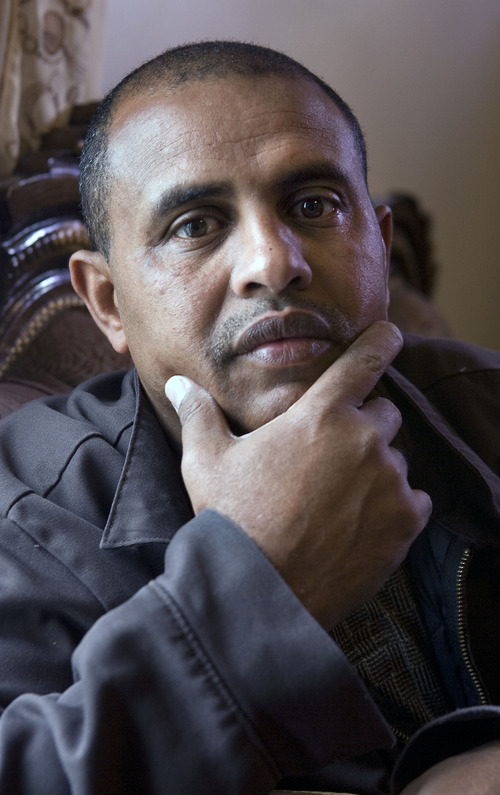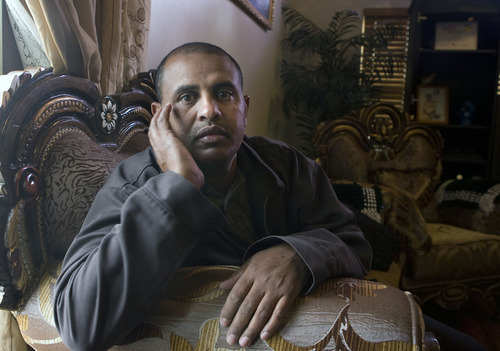This is an archived article that was published on sltrib.com in 2011, and information in the article may be outdated. It is provided only for personal research purposes and may not be reprinted.
Eight months after his nephew was strangled while in the care of the Utah State Hospital for the mentally ill, Almoh Bahaji can't understand why his family has been ignored.
For months, no one has contacted them about investigations, charges or any explanations as to why Omar Abas Sharif, 28, died just as the family thought he was recovering from his mental illness, said Bahaii, a cab driver. More than 20 visits to the Provo police station have left him without any information, he said.
"If somebody dies in your home, you have to apologize," said the Somali refugee, whose family arrived in Utah in 1996. "At least somebody has to contact you to say we have to bring that person to justice."
Now prosecutors say they plan to file criminal charges against James Clive Norman, the patient accused of strangling Sharif, his roommate at the Utah State Hospital — news Bahaji learned from The Salt Lake Tribune.
But it remains to be seen if or when Norman will go before a jury. Before Norman allegedly strangled his roommate on March 18, he was found incompetent to stand trial in an unrelated assault case.
Norman will remain at the state hospital in Provo at least until March, when there will be another hearing to determine whether he has been rehabilitated enough to assist in his own defense on the assault charge.
"It's definitely pretty unusual," said Deputy Utah County Attorney Doug Finch.
After initial contact from state hospital officials after his nephew's death, Bahaji said the family has been given no information about any investigations. He hasn't been able to obtain a copy of the police report.
"We need somebody to tell us what's going on," he said.
Now Bahaji is looking for a lawyer to help the family find out why Sharif died and why he had a roommate — something his relatives didn't even realize until after the death.
Bahaji believes the two probably had great difficulty communicating.
Norman had a history of violence and had previously been a patient at the state hospital. A convicted sex offender, he was upset over Sharif's snoring, investigators have said.
Once law enforcement becomes involved in a case, if any family members of a patient call, they're referred to that law enforcement agency, according to Elizabeth Sollis, spokeswoman for the Utah Department of Human Services. "They can't share anything if there's a pending investigation because it could jeopardize the investigation."
The hospital's decision to place Sharif in a room with Norman is not evaluated in a recently-released summary of the state's review of the killing. Sharif's death is identified as a homicide caused by "asphyxia due to strangulation" by his roommate.
The committee investigating the death found that staff started CPR promptly and employed a defibrillator correctly, among other details. "The hospital Assistant Director worked well with the decedent's family," the report states.
The summary is included in the annual Department of Human Services fatality report, a public document that tallies the deaths of Utahns who died while or shortly after receiving state services. Due to a recent change in the law, more detailed accounts of the fatalities can be made available to legislators by request, but in sessions closed to the public.
Sharif's stay at the hospital began in 2009 after he boarded a Utah Transit Authority bus in Salt Lake City, ranting, and refused to leave the bus. He assaulted the bus driver, rubbing her neck and breasts, court documents state. He was charged with trying to hijack a bus, a felony, and misdemeanor sexual battery.
Before the incident, the family knew something was wrong with Sharif.
"Everything he think was an enemy," Bahaji recalled. He was scared of snow and of people and couldn't hold down a job.
But at the time of his death, the family was hoping Sharif would soon be released from the state hospital. They thought he should get married, Bahaii said, and talked of taking him to Kenya, where they lived temporarily before immigrating to the U.S.







